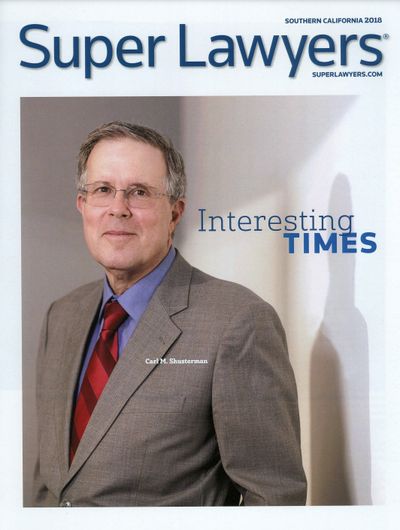The End of Chevron Deference Makes It Easier To Challenge Immigration Denials

In 1984, the Supreme Court ruled in the Chevron case that when a federal statute is ambiguous, federal courts should defer to the agency’s interpretation of the law as long as their interpretation is “reasonable”.
While overturning the Chevron Deference Doctrine will have negative consequences in many areas of law, it will revolutionize the ability of persons to challenge immigration denials by federal agencies (including USCIS, ICE, CBP, EOIR, etc.) based on overly restrictive interpretations of U.S. immigration laws.
As a former INS Trial Attorney (1976-82), I am well aware that government agencies tend to interpret U.S. immigration laws in a very restrictive manner.
Client Reviews

Professional and Knowledgeable Law Firm
“I’ve had a decade of experience with Mr. Shusterman’s law firm. I used them for my immigration needs from H1 to citizenship. It is safe to say this is one of the most competent, professional and knowledgeable law firms. If there is a firm that can handle any possible immigration case routine or otherwise; then this is it.”
- D. Chen, Phoenix, Arizona
Read More Reviews
Zoom Consultations Available!
The End of Chevron Deference
The Court’s decision in overturning the Chevron Deference Doctrine is best summarized in Justice Gorsuch’s concurrence:
“…[T]he Constitution, the APA, and our longstanding precedents set those ground rules [for judging agency action] some time ago. And under them, agencies cannot invoke a judge-made fiction to unsettle our Nation’s promise to individuals that they are entitled to make their arguments about the law’s demands on them in a fair hearing, one in which they stand on equal footing with the government before an independent judge.”
Justice Gorsuch cited an immigration case:
“In … De Niz Robles v. Lynch, 803 F.3d 1165 (CA10 2015), the Board of Immigration Appeals invoked Chevron to overrule a judicial precedent on which many immigrants had relied, see In re Briones, 24 I. & N. Dec. 355, 370 (BIA 2007) (purporting to overrule Padilla-Caldera v. Gonzales, 426 F.3d 1294 (CA10 2005)). The agency then sought to apply its new interpretation retroactively to punish those immigrants – including Alfonzo De Niz Robles, who had relied on that judicial precedent as authority to remain in this country with his U.S. wife and four children. See 803 F.3d at 1168-1169.”
“Our court ruled that this retrospective application of the BIA’s new interpretation of the law violated Mr. De Niz Roble’s due process rights. Id., at 1172. But as a lower court, we could treat only the symptom, not the disease. So Chevron permitted the agency going forward to overrule a judicial decision about the best reading of the law with its own different “reasonable” one and in that way deny relief to countless future immigrants.”
Challenging Immigration Denials in Federal Court
Let me provide you with an example of an immigration decision by the US Supreme Court which has divided thousands of children from their parents due to Chevron deference.
Immigration laws are designed to keep families together. If a person is sponsored for a green card, the person’s spouse and children are generally permitted to adjust their status or obtain their immigrant visas together with the principal applicant.
However, once a child reaches the age of 21, the law states that he/she has “aged-out” and cannot immigrate together with the rest of the family.
To remedy this situation, in 2002, Congress passed and the President signed into law the Child Status Protection Act (CSPA) in order to prevent families from becoming separated due to long waiting times in many family-based and employment-based preference categories.
CSPA provides a formula which allows a child to subtract the time that the I-130 or I-140 visa petition was pending from his age when his priority date becomes current.
However, many children still “age-out” despite this formula.
Therefore, Congress included the following “automatic conversion” clause to CSPA to help prevent family separation:
‘‘(3) RETENTION OF PRIORITY DATE.—If the age of an alien is determined under paragraph (1) to be 21 years of age or older for the purposes of subsections (a)(2)(A) and (d), the alien’s petition shall automatically be converted to the appropriate category and the alien shall retain the original priority date issued upon receipt of the original petition’’.
Scialabba v. Cuellar de Osorio – Separation of Immigrant Families
Consider the case of Rosalina Cuellar de Osorio and her family.
Rosalina’s mother, a US citizen, sponsored her and her son Melvin for green cards in May 1998. At this time, Melvin was 13 years of age. However, by the time that his priority date became current in 2005, Melvin had turned 21 and had “aged-out”.
Once she got a green card, Rosalina sponsored Melvin under the family-based 2B category as the adult, unmarried son of a lawful permanent resident. Under CSPA’s automatic conversion clause, she requested that he keep his place in line for a green card, his 1998 priority date. This would have allowed Melvin to rejoin her in the U.S. within a few months.
However, the USCIS refused to allow Melvin to retain the 1998 priority date despite the many years that he had waited in line for a green card. Instead, they moved him to the back of the line where he would have to wait many years to get a green card and be reunited with his family in the U.S. This was clearly contrary to law.
In 2008, on behalf of Mrs. Cuellar de Osorio and several similarly situated persons, we sued the USCIS to force them to allow Melvin and his peers to retain their original priority dates and to be able join their families in the United States.
From CSPA’s passage in 2002 until our lawsuit in 2008, the USCIS had never issued a regulation or even a memo explaining how to interpret the “automatic conversion” clause of CSPA.
However, soon after our lawsuit was filed, the Board of Immigration Appeals (BIA) issued a flawed decision in Matter of Wang, which severely restricted who could benefit from the automatic conversion clause.
Unfortunately, both the U.S. District Court and the 9th Circuit Court of Appeals granted Chevron deference to the BIA’s mistaken interpretation of the law and ruled that Melvin and his peers were not entitled to retain their original priority dates under CSPA.
In 2012, an 11-judge panel of the 9th Circuit Court of Appeals agreed to rehear the case, and ruled in favor of the long-separated families. They found that the intent of Congress was clearly expressed in CSPA, and that there was no need to defer to the agency’s mistaken interpretation of the law. See the video of the oral arguments below.
Unfortunately, the Government decided to appeal the decision to the U.S. Supreme Court.
Various groups submitted Friend of the Court Briefs to the Supreme Court. One of these briefs was submitted by 6 Senators, 3 Republicans and 3 Democrats who were all in the Senate when the CSPA was enacted in 2002: Dianne Feinstein (D-CA), Orrin Hatch (R-UT), John McCain (R-AZ), Robert Menendez (D-NJ), Charles Schumer (D-NY) and former Senator Sam Brownback (R-KS).
The Senators’ brief stated that the “Court should not allow the Solicitor General to introduce ambiguity into the CSPA where none exists.”
Despite this, the U.S. Supreme Court in a 5-4 decision, overturned the 9th Circuit’s decision stating that “because §1153(h)(3) does not speak unambiguously to the issue here, a court must defer to the BIA’s reasonable interpretation.”
As a result, Melvin and his peers were not given credit for the many years that they had stood in line for green cards. They were separated from their families.
The Court’s decision to grant Chevron deference to the agency has resulted in the separation of thousands of sons and daughters from their parents.
Conclusion – The End of Chevron Deference
We have successfully reversed many denials of immigration benefits in Federal Court.
Now that the Supreme Court has overturned the Chevron Deference Doctrine, it will be even easier to challenge erroneous decisions by immigration agencies.
